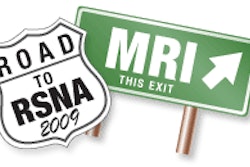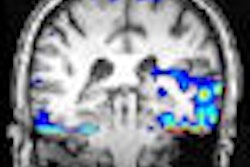fMRI provides a noninvasive preoperative evaluation method of language lateralization for epilepsy and tumor patients. With the new rhyming paradigm, researchers hope to improve the diagnostic quality of fMRI scans, especially for children.
"Kids constitute a challenge to a useful clinical fMRI experiment, being easy distractible with excessive motion inside the scanner," said Dr. Shamseldeen Mahmoud, co-author and image analysis lab coordinator in the Mellen Center for MS at Cleveland Clinic. "The rhyming task is a useful tool for language mapping and clinical applications, potentially more specific to cortical language areas than verbal fluency."
The rhyming task included preschool and early elementary school words combined with a word-associated picture, while matching stick figures served as a control during times of rest. The seven patients in the preliminary test ranged from an 11-year-old male with epilepsy to a 77-year-old woman with a brain tumor and reading difficulties. Four other participants were adults with brain tumors and/or epilepsy.
fMRI scans were performed on a 3-tesla MRI scanner (Magnetom Trio, Siemens Healthcare, Malvern, PA).
Researchers found that activation and behavioral scores were better for picture-aided rhyming among all 11 subjects. The study noted that the 11-year-old male showed more activation on the new picture-aided rhyming with more anatomically relevant activated areas, consistent plots of activation with on/off cycles, and minimal patient motion from the translation rotation plots compared to the regular rhyming.
"Localization of eloquent brain cortex is of critical importance for planning a surgical resection as treatment of seizure disorders and intracranial neoplasms," Mahmoud added.
Because many fMRI exams of children are inadequate due to excessive motion and poor performance with current adult rhyming paradigms, researchers believe the new rhyming technique motivates children's performances, as the word-associated picture helps reading.
The results also may lead definitively to a new clinically applicable rhyming paradigm for children and adults with special needs.



















